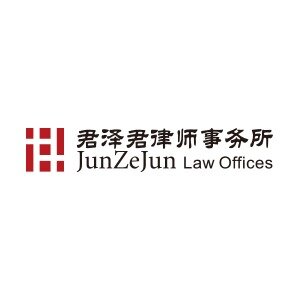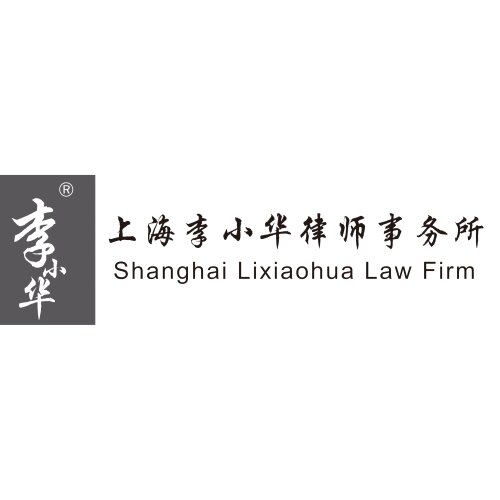Best Merger & Acquisition Lawyers in China
Share your needs with us, get contacted by law firms.
Free. Takes 2 min.
Or refine your search by selecting a city:
List of the best lawyers in China
About Merger & Acquisition Law in China
Merger & Acquisition (M&A) activities in China have become increasingly significant as the country continues to open its markets and integrate with the global economy. The laws governing M&A in China focus on regulating the transactions to ensure market stability, protect national interests, and enhance fair competition. These laws are constantly evolving to accommodate China's rapidly growing economy and its complex regulatory landscape. The M&A process involves a range of legal, financial, and commercial considerations, making it crucial for businesses to understand the local legal framework when considering mergers or acquisitions in China.
Why You May Need a Lawyer
When engaging in M&A activities in China, there are multiple scenarios where expert legal advice becomes indispensable:
- Complex Regulations: Navigating the intricate and often-changing regulatory environment of Chinese laws pertaining to foreign investments, anti-monopoly compliance, and state secrets can be challenging without legal expertise.
- Due Diligence: Conducting thorough due diligence to assess potential risks and liabilities associated with the target company is critical, and requires legal professionals to interpret local laws and regulations accurately.
- Contract Drafting and Review: Ensuring agreements comply with Chinese laws and adequately protect your interests necessitates expert drafting and thorough review by experienced lawyers.
- Approval Processes: Understanding and navigating the various approval processes involved, such as those from the Ministry of Commerce (MOFCOM) and the State Administration for Market Regulation (SAMR).
- Dispute Resolution: A competent M&A lawyer is crucial for resolving any disputes that may arise during the course of the transaction or post-merger.
Local Laws Overview
Key local laws relevant to M&A in China include:
- Company Law: Governs mergers and divisions of companies and stipulates shareholders’ rights and corporate governance.
- Securities Law: Regulates public company disclosures, insider trading, and overall market operations, critical for listed company M&As.
- Anti-Monopoly Law: Ensures fair competition and requires companies to submit transactions for government review if they meet certain thresholds.
- Foreign Investment Law: Standardizes the management of foreign investments and outlines sectors where foreign investment is restricted or prohibited.
- Labor Law: Addresses employment transitions and obligations during M&A transactions.
- Tax Law: Provides guidelines on tax considerations and obligations resulting from M&A activities.
Frequently Asked Questions
1. What is the process for conducting an M&A in China?
Conducting an M&A in China typically involves regulatory filing, due diligence, valuation, negotiation, drafting agreements, seeking government approvals, and post-deal integration.
2. Are there industries where foreign M&As are restricted in China?
Yes, China maintains a "negative list" outlining sectors where foreign investment is restricted or prohibited. It’s crucial to review this list when considering an M&A transaction.
3. How long does the approval process for an M&A usually take?
The approval process can vary significantly depending on the complexities and scale of the transaction; generally, it could range from a few months to over a year.
4. What is Anti-Monopoly Review and when is it required?
Transactional parties must notify and seek clearance from the SAMR if deals exceed certain turnover thresholds to ensure they don’t hinder market competition.
5. How can I protect my intellectual property during an M&A?
A thorough IP due diligence should be conducted, and specific clauses embedded in the contractual agreements to safeguard IP rights.
6. What taxes apply to M&A transactions?
Taxes, such as transfer pricing, capital gains, and VAT, may apply to M&A transactions. It is advisable to consult tax experts for a detailed evaluation.
7. Can I acquire a state-owned enterprise in China?
Yes, but acquiring state-owned enterprises involves additional steps, including governmental assessments and specific approval processes.
8. What are the common challenges in cross-border M&A transactions in China?
Common challenges include cultural differences, regulatory hurdles, due diligence complexities, and communication barriers.
9. What are the penalties for non-compliance with M&A regulations?
Penalties may include fines, transaction roll-back, business license revocation, or other legal implications depending on the severity of the compliance breach.
10. Do shareholders need to approve M&A transactions?
Under Chinese Company Law, major transactions, including M&As, often require the approval of the shareholders' meeting, especially if they significantly affect shareholders' interests.
Additional Resources
For further assistance, consider reaching out to the following resources:
- Ministry of Commerce (MOFCOM): Responsible for foreign investment administration in China.
- State Administration for Market Regulation (SAMR): Oversees anti-monopoly assessments and market competition.
- China Securities Regulatory Commission (CSRC): Regulates China’s securities markets and M&As of listed companies.
- Professional Legal Firms: Engaging reputable law firms with M&A experience in China can offer specialized insights and guidance.
Next Steps
If you need legal assistance in M&A in China, consider the following steps:
- Assessment: Assess your needs and understand the scope of legal services required.
- Research: Research and identify legal firms with a strong track record in Chinese M&A transactions.
- Consultation: Arrange consultations to discuss your case and understand the legal strategies they propose.
- Engagement: Engage the services of a firm that demonstrates an in-depth understanding of M&A laws in China and is well-suited to support your needs.
Lawzana helps you find the best lawyers and law firms in China through a curated and pre-screened list of qualified legal professionals. Our platform offers rankings and detailed profiles of attorneys and law firms, allowing you to compare based on practice areas, including Merger & Acquisition, experience, and client feedback.
Each profile includes a description of the firm's areas of practice, client reviews, team members and partners, year of establishment, spoken languages, office locations, contact information, social media presence, and any published articles or resources. Most firms on our platform speak English and are experienced in both local and international legal matters.
Get a quote from top-rated law firms in China — quickly, securely, and without unnecessary hassle.
Disclaimer:
The information provided on this page is for general informational purposes only and does not constitute legal advice. While we strive to ensure the accuracy and relevance of the content, legal information may change over time, and interpretations of the law can vary. You should always consult with a qualified legal professional for advice specific to your situation.
We disclaim all liability for actions taken or not taken based on the content of this page. If you believe any information is incorrect or outdated, please contact us, and we will review and update it where appropriate.
Browse merger & acquisition law firms by city in China
Refine your search by selecting a city.















